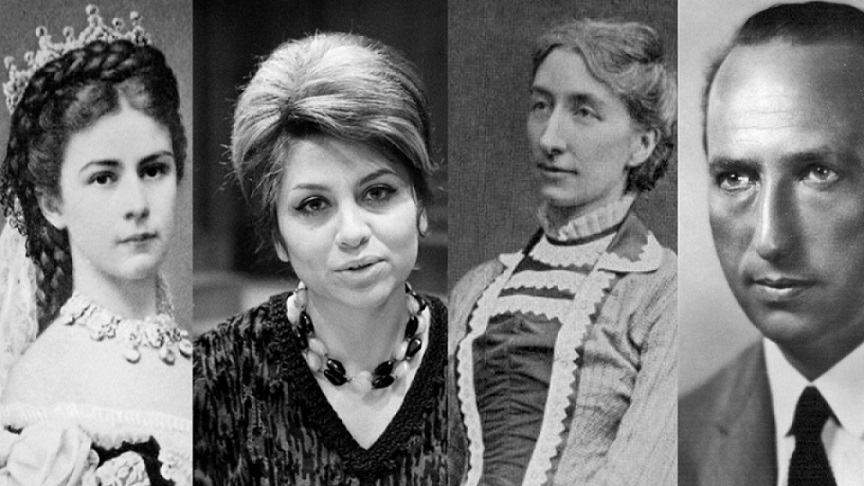Queen Elizabeth, daughter of Ferenc Liszt, Edit Domján and Mihály Kertész. What they have in common is that all four of them were born on Christmas.
He was born on December 24, 1837, at 10:43 p.m. in Munich as the child of Bavarian Prince József Miksa and Bavarian Princess Mária Ludovika. He was born with one tooth, which according to tradition was taken as a good omen in the princely family, he was considered a lucky person. Elisabeth's sister, Ilona, was intended for Austrian Emperor Francis Joseph, but after the monarch saw Sisi, he declared that he would rather marry her, and in 1854 he led the 16-year-old girl to the altar in Vienna. A year later, their first child together, Archduchess Zsófia, was born
at the age of two, he fell ill in the Budavári Palace and died within days.
At that time, the second little girl, Gizella, was already alive, followed by heir to the throne Rudolf and Mária Valéria. Although Sisi was considered a child of fortune, her life was full of tragedies. After Zsófia's death, he became depressed, and moreover, he took care of his mother-in-law, Friderika Zsófia, who did not leave him the care and education of the children. And it is also known that Ferenc József regularly looked for happiness elsewhere. In the spirit of secession, Queen Elizabeth insisted that Buda give birth to her fourth child, Valéria Márai. He was born in Bavaria, but he liked the Hungarians, he also learned the language, he was a fan of, for example, the writings of Mór Jókai. He spent time in Gödöllő castle if he could, and not incidentally, one of his best friends was also Hungarian, Ida Ferenczy. Her fate did not turn out much better: in 1889, Rudolf's son committed suicide (the assumption that he was killed is still maintained), and in 1898, an Italian anarchist took the queen's life as well.
Cosima Wagner
One day with Sisi, 1837. was born on December 24, in a small Italian town, Bellagio, as the child of the world-famous Hungarian composer, pianist and conductor, Ferenc Liszt. His mother was Marie d'Agoult, a prominent representative of French romantic literature, who lived in a life-long relationship with Liszt. Three children were born from the love. First, Blandine, who was only twenty-seven years old when she died during childbirth, and Daniel did not even live that long, he died of pneumonia at the age of 20. Ferenc Liszt maintained an excellent friendship with the contemporary German composer Richard Wagner, no wonder he also introduced Cosima to him.
Wagner, who was 24 years older, then married Liszt's child in 1870.
Cosima helped the famous composer in everything, and even after his death, she worked to organize the Bayreuth Festival Games. In his old age, in 1906, he retired and handed over the organizational tasks to his son, the composer Siegfried Wagner. Cosima Wagner later became partially paralyzed due to wind chill and almost lost her sight. He finally died in 1930 at the age of 92.
Edit Domján
She could have been a real diva if she hadn't decided she didn't want to live past forty. This is Edit Domján, who was born 90 years ago, on December 25, 1932. It all started with a Vörösmarty poem at the primary school in Maglód. He quit and was called to the principal's office at the end of class; he didn't understand why, since he hadn't done anything wrong. The director looked at her and just said, "Be an actress!" It was. When she was still young, she once shocked those around her with the following words: "I think an actress should not live past forty years.
I will die when I am forty. I'm going to commit suicide!”
He was only 27 years old at the time, and no one took his words seriously. Flórián Kaló, also a well-known actor, was her husband, or rather the support of the unstable-spirited actress. They divorced in 1969, but remained friends. Edit Domján was afraid of aging, of failure, and maybe she didn't even believe that love would find her anymore. Then Pál Szécsi came into her life. The two extreme, insecure people experienced a wonderful love, but they were unable to keep each other. After Szécsi broke up with Edit Domján, he was shocked by the news that the actress committed suicide. As well as the fact that he abandoned their child together before him. On December 25, 1972, Edit Domján brought Christmas presents to her parents and younger brother on her fortieth birthday, then went home. His colleague, Éva Almási, rang his bell in the evening in vain. The next day, when he didn't go to his lecture, the door was broken down. He was no longer alive.
Mihály Kertész
He was born on December 25, 1886 in Budapest, in a Jewish family, his father worked as a house painter. He was only 17 years old when he ran away from home and became an actor, and then the silent film era arrived, which captivated him. He filmed in Denmark, then went to Cluj in 1914, where he directed several films, but most of them have been lost. Mihály Kertész
welcomed the Soviet Republic in 1919 and even made propaganda films,
therefore, after the overthrow of the proletarian dictatorship, he moved to Vienna, and from there to the United States. During his long and successful Hollywood career, he made more than a hundred films, Casablanca, released in 1942 (eighty years ago), took him to the top. Several Hungarians also played roles in the cult movie: the role of Ugarte was played by László Löwenstein, who was born in Felvidék, Carl, the head waiter was Sándor Gartner. Not incidentally, one of the film's main characters, Humphrey Bogart, was also born on Christmas in 1899, but that's another story...












